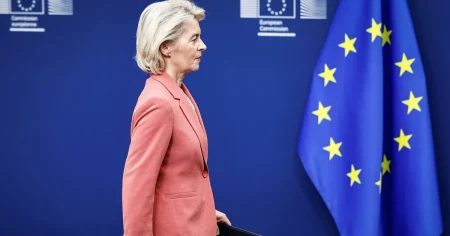President Joe Biden’s commutation of 37 federal death sentences on Monday marks a significant shift in federal death penalty policy, effectively ending capital punishment at the federal level for the foreseeable future. While the death penalty remains a legal possibility, the Biden administration has established a de facto moratorium, halting executions and signaling a commitment to reviewing existing death sentences. This move reflects a growing national trend towards questioning and reconsidering capital punishment, driven by concerns about its morality, fairness, and effectiveness as a deterrent. The commutations focus on individuals convicted of federal crimes involving murder, and while the specific details of each case vary, they represent a broad application of executive clemency aimed at addressing systemic issues within the federal justice system. The decision leaves three federal death row inmates unaffected, highlighting the complexities and nuances surrounding particularly sensitive cases.
The action to commute these sentences builds upon previous steps taken by the Biden administration to restrict the use of the death penalty. Attorney General Merrick Garland imposed a moratorium on federal executions in 2021, halting a practice restarted under the Trump administration, which saw 13 executions carried out in its final six months. This moratorium allowed for a comprehensive review of the federal death penalty protocols and procedures, addressing concerns about potential biases and the disproportionate application of the death penalty to specific demographics. The commutations are a logical extension of this review process, reflecting the administration’s broader criminal justice reform agenda. They represent a significant departure from previous presidential administrations, both Democratic and Republican, which have historically been reluctant to grant widespread clemency in death penalty cases.
Biden’s commutations, applied to inmates across the country, spared individuals convicted of a range of crimes, including drug-related offenses, murder for hire, and acts of terrorism. The administration emphasized the severity of the crimes committed, acknowledging the lasting impact on the victims and their families. However, the decision to commute the sentences rests on several key arguments: the inherent fallibility of the justice system, the potential for wrongful convictions, and the disproportionate impact of the death penalty on marginalized communities. By commuting these sentences to life imprisonment without the possibility of parole, the administration aims to balance the need for accountability with the recognition of human dignity and the possibility of rehabilitation, even in the most extreme cases.
The three individuals not included in the commutations – Dzhokhar Tsarnaev, the Boston Marathon bomber; Dylann Roof, the white supremacist who murdered nine Black parishioners in a Charleston church; and Gary Sampson, who carjacked and killed three people – represent particularly egregious cases that have garnered significant public attention and outrage. Their exclusion underscores the political sensitivities surrounding the death penalty debate and the challenges in achieving consensus on its application. These cases are often characterized by the horrific nature of the crimes, the extensive media coverage, and the strong emotional responses they evoke from the public, making them difficult test cases for broader policy changes. The administration’s decision to maintain the death sentences in these specific instances reflects the complex interplay between legal principles, public opinion, and political considerations.
The impact of Biden’s decision extends beyond the individuals directly affected. It sends a powerful message about the administration’s stance on capital punishment, further solidifying its commitment to criminal justice reform. It also contributes to the ongoing national conversation about the death penalty, potentially influencing state-level policies and legal challenges. Advocates for abolishing the death penalty view this as a significant step towards their ultimate goal, while proponents of capital punishment argue that it undermines justice and disrespects the victims of violent crimes. The debate remains deeply divided, reflecting fundamental disagreements about the role of punishment, the value of human life, and the efficacy of the death penalty as a deterrent.
The commutations represent a milestone in the evolving history of the death penalty in the United States. While its future remains uncertain, the Biden administration’s actions mark a significant shift towards a more restrained and cautious approach to capital punishment at the federal level. This action prompts continued dialogue and consideration of the ethical, legal, and societal implications of the death penalty, fostering a broader examination of its purpose and effectiveness within the American justice system. It also highlights the complexities of achieving a balance between accountability, justice, and mercy, especially in the most challenging and emotionally charged cases. The decision is likely to spark further debate and legal challenges as the national conversation about capital punishment continues to evolve.














